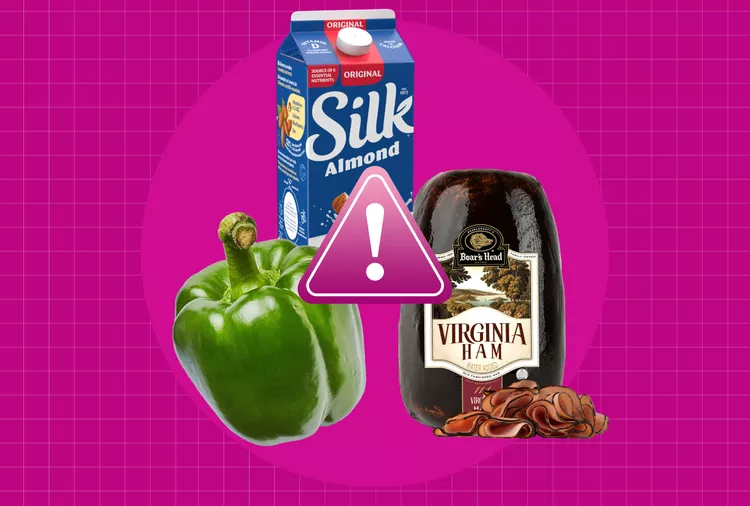Contents
- 1 Jumping Spider Bites
- 2 Takeaway
Jumping Spider Bites
What You Need to Know and How to Treat Them
Do Jumping Spiders Bite: Jumping spiders are among the most common spider species, with thousands of varieties worldwide, though only around 300 species are native to the United States. While these spiders might look intimidating due to their quick movements and large eyes, jumping spiders are generally not harmful to humans. Even if you do get bitten, the effects are typically mild and not life-threatening.
These spiders tend to bite only when they feel threatened or are accidentally crushed. According to the University of California, Davis, a bite from a jumping spider is often compared to a bee sting in severity, resulting in minor discomfort like a small welting similar to a mosquito bite. In rare cases, some people may experience a more significant reaction if they are allergic to the spider’s venom or if the bite was caused by a different species of spider entirely.
This article will guide you on how to properly treat a jumping spider bite and when you should seek medical help if symptoms worsen.
What You Should Know About Jumping Spiders
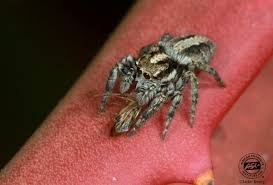
If you’ve been bitten by a spider, it’s important to stay calm and take note of the spider’s appearance. Key features to observe include:
- Color
- Size
- Stripes or markings
If possible, try to take a photo of the spider, particularly if it is crushed after the bite. One commonly known jumping spider is the Phidippus audax, or the “orchard spider,” which often has distinct orange and white spots on its abdomen. Jumping spiders typically don’t spin webs to catch prey; instead, they leap forward to capture insects and may hang from a single thread of silk.
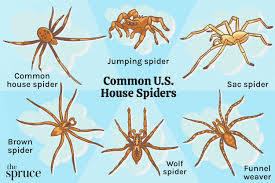
How to Treat a Jumping Spider Bite at Home
In most cases, a jumping spider bite can be treated at home with simple first aid steps:
- Wash the bite site thoroughly with soap and water to cleanse it and prevent infection.
- Apply a cool compress (such as a damp washcloth) to reduce swelling, redness, and discomfort at the bite area.
- If a welt appears, consider applying a topical antibiotic ointment to avoid any potential bacterial infection.
If these basic treatments do not alleviate the discomfort, you can try antihistamine creams or topical analgesics to further reduce symptoms.
When to Seek Medical Attention
While jumping spider bites are rarely severe, you should seek medical advice if:
- Symptoms do not improve or worsen within 24 to 48 hours.
- You experience signs of an allergic reaction or if the bite might have been from another type of spider.
Possible signs that warrant a doctor’s visit include:
- Nausea or vomiting
- Dizziness or lightheadedness
- A blister that is red or purple
- Difficulty breathing or increased heart rate
- Swollen lymph glands or fever
Conclusion: Are Jumping Spider Bites Dangerous?
In general, jumping spiders are not dangerous to humans. They are timid creatures that will not bite unless provoked. Even if they do bite, the effects are usually mild, with only minor skin irritation and no long-lasting harm.
However, it’s essential to monitor any bite and follow proper first aid to avoid infection. If you notice severe symptoms or feel concerned about the bite, don’t hesitate to reach out to a healthcare provider. Allergic reactions to jumping spider venom are rare but can lead to more significant health issues. Always seek prompt medical care if you develop any unusual symptoms after a spider bite.
By staying informed and treating the bite correctly, you can help reduce any risks and prevent complications from a jumping spider bite.
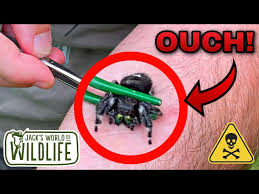
Call a doctor immediately if you experience any of these symptoms after a spider bite:
If you experience any of the following symptoms after a spider bite, it’s important to contact a doctor immediately to ensure proper care and treatment:
- Nausea and vomiting
- Dizziness or feeling lightheaded
- Rashes that spread beyond the initial bite area
- A blister that appears red or purple
- Difficulty breathing or shortness of breath
- An increased heart rate or palpitations
- Fever or chills
- Elevated blood pressure
- Swollen lymph nodes
These signs could indicate a severe reaction or a possible infection that requires urgent medical attention. Always err on the side of caution and seek professional help if you’re uncertain.
When to Call a Doctor After a Spider Bite
If you suspect a spider bite and develop severe symptoms, it’s crucial to seek immediate medical attention. While many spider bites are harmless and heal on their own, certain reactions may indicate a more serious issue, such as an allergic reaction or venom-related complications. Contact a doctor promptly if you notice any of the following:
- Nausea and vomiting
- Dizziness or lightheadedness
- Rashes spreading beyond the initial bite area
- The appearance of a purple or red blister at the bite site
- Difficulty breathing, which could indicate a severe allergic reaction
- Increased heart rate or palpitations
- Fever or chills, suggesting a possible infection or venom reaction
- Elevated blood pressure, often linked to systemic effects of venom
- Swollen lymph glands, which might signal your body’s immune response to an infection
Ignoring these symptoms could lead to complications, such as spreading infections, allergic reactions, or more severe health conditions caused by venomous spider bites. Always err on the side of caution and consult a healthcare professional if you’re unsure about the severity of a spider bite.
In the meantime, try to clean the bite area with soap and water, apply a cold compress to reduce swelling, and keep the affected limb elevated. These steps can help manage symptoms while awaiting professional medical advice.
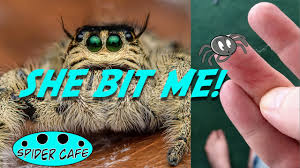
Takeaway
Jumping spiders pose little to no danger to humans. They are generally harmless and will only bite if they feel severely threatened or in immediate danger.
Even in the rare event of a bite, it’s unlikely to puncture your skin. If the bite does break the skin, severe reactions are extremely rare unless you have a specific allergy to jumping spider venom or the spider happens to be a different, more harmful species.
To ensure proper care after any spider bite:
- Monitor your symptoms closely.
- Use first aid treatments to clean the area and reduce the risk of infection.
- Be aware that spider bites may take longer to heal than typical insect bites.
If you notice signs of an allergic reaction or a severe response, don’t delay in contacting a doctor. Seek emergency medical attention if necessary to ensure your safety.

